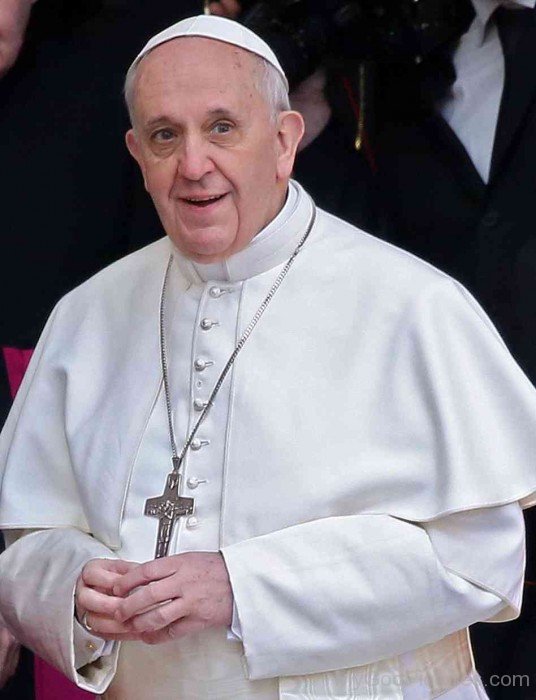Did Pope Francis Really Say All Religions Lead to God? This question has sparked intense debate and discussion among theologians, religious leaders, and the general public alike. The statement attributed to Pope Francis about all religions leading to God has been both celebrated and criticized, depending on one's perspective. As we delve into this topic, it is essential to examine the context in which these words were spoken and explore their implications for interfaith dialogue and understanding.
Unpacking the controversial statement requires a careful examination of Pope Francis's teachings and his approach to interreligious relations. Known for his inclusive and compassionate stance, Pope Francis often emphasizes the importance of dialogue and mutual respect between different faiths. His remarks about all religions being paths to God have raised questions about the compatibility of this view with traditional Catholic doctrine, particularly concerning the exclusivity of Christ as the way to salvation. Let us explore this issue further by analyzing various perspectives and interpretations.
Pope Francis’s Visit to Singapore: A Message of Unity
During his apostolic journey to Singapore, Pope Francis addressed a gathering of young people from diverse religious backgrounds. In an atmosphere of openness and mutual respect, he shared his vision of unity and harmony among different faiths. The Pope emphasized that while each religion has its unique traditions and practices, they all share a common goal: seeking a deeper connection with God. This message resonated with many attendees, who appreciated his efforts to foster interfaith understanding.
By comparing religions to different languages used to communicate with God, Pope Francis highlighted the importance of recognizing the diversity within humanity's spiritual quest. He encouraged young people to embrace their respective faiths while remaining open to learning from others. This approach fosters a sense of unity without compromising individual beliefs or identities. It also underscores the value of dialogue as a means of promoting peace and cooperation among communities.
The Pope's words during this visit reflect his broader mission of building bridges between different cultures and religions. By acknowledging the validity of other faiths' paths to God, he challenges stereotypes and misconceptions that often lead to division and conflict. Instead, he advocates for a more inclusive worldview where everyone can contribute to creating a better world through their unique spiritual experiences.
Interpreting the Pope’s Words: A Matter of Perspective
Some critics argue that Pope Francis's statement contradicts core tenets of Catholicism, particularly the belief expressed in John 14:6 that Jesus is the only way to God. However, supporters contend that his remarks should be understood in light of his emphasis on humility and respect for others' journeys toward truth. They point out that the Pope did not claim all religions are equal but rather suggested they represent distinct yet complementary ways of approaching the divine.
This interpretation aligns with Catholic social teaching, which acknowledges the goodness present in other religions while affirming Christianity's unique role in revealing God's plan for humanity. By emphasizing commonalities rather than differences, Pope Francis seeks to encourage constructive engagement between believers of various faiths. Such dialogue can enrich our understanding of God and inspire collaborative efforts to address global challenges such as poverty, injustice, and environmental degradation.
Moreover, the Pope's willingness to engage with people of other faiths demonstrates his commitment to evangelization through witness and action. Rather than imposing doctrines, he invites others to experience the love and mercy of God through compassionate interactions. This approach reflects the spirit of Vatican II, which called for greater ecumenical and interreligious cooperation based on mutual respect and understanding.
A New Era of Interfaith Dialogue
Pope Francis's assertion that all religions lead to God has sparked renewed interest in interfaith dialogue worldwide. While some may view this statement as controversial, it offers an opportunity for meaningful conversations about the nature of faith and spirituality. By focusing on shared values and aspirations, individuals from different religious backgrounds can work together to build a more just and peaceful society.
As the global community becomes increasingly interconnected, fostering mutual respect and understanding among diverse cultures and religions becomes ever more crucial. Pope Francis's leadership provides a model for how religious leaders can promote harmony without sacrificing doctrinal integrity. His example encourages others to embrace complexity and ambiguity in their pursuit of truth, recognizing that multiple perspectives can coexist harmoniously under God's universal love.
In conclusion, whether one agrees or disagrees with Pope Francis's statement, it serves as a catalyst for important discussions about the relationship between faith, identity, and unity. By engaging in thoughtful reflection and respectful dialogue, we can deepen our appreciation for the richness of human spirituality and strengthen our collective commitment to serving God and neighbor in today's rapidly changing world.

